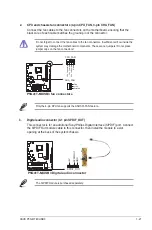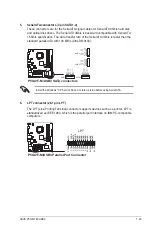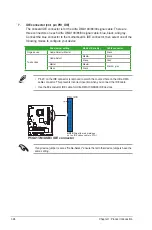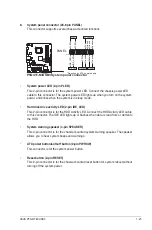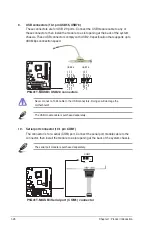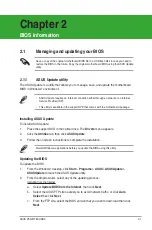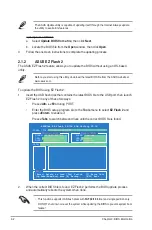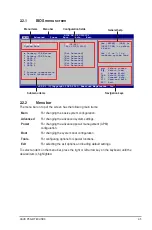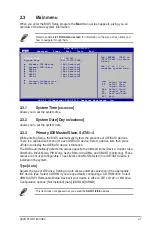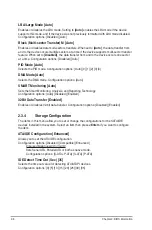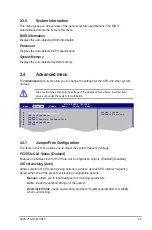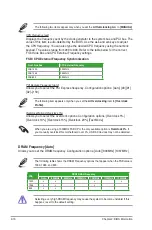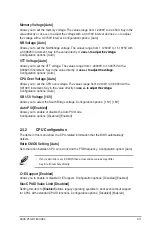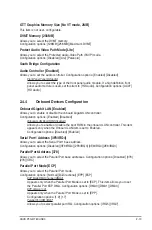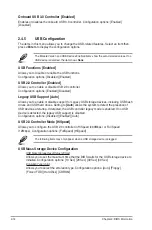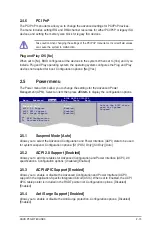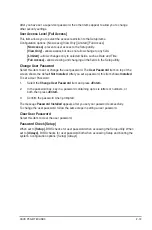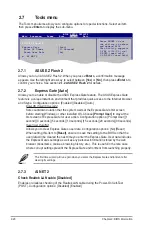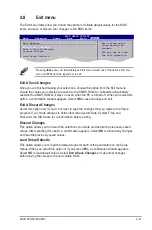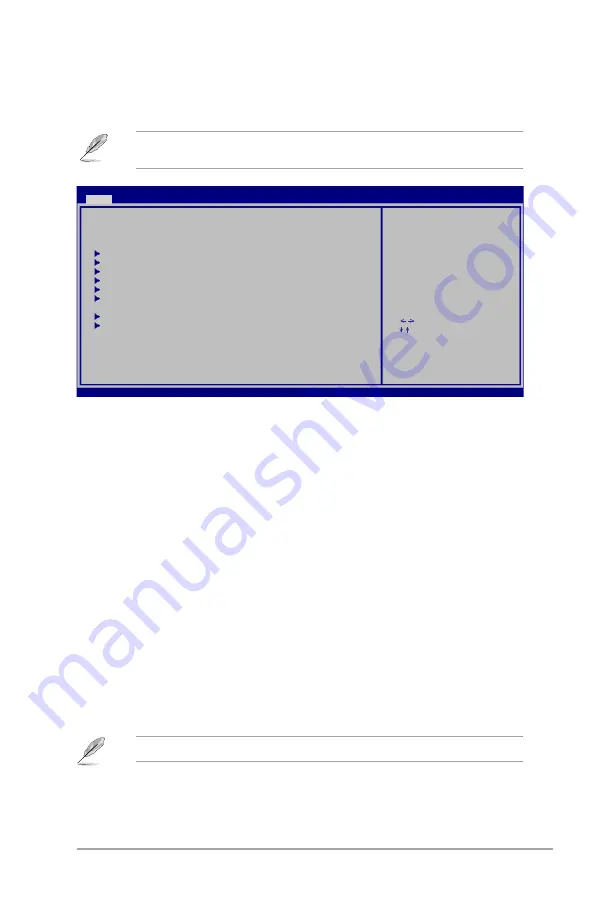
ASUS P5G41T-M/USB3
2-7
2.3
Main menu
When you enter the BIOS Setup program, the
Main
menu screen appears, giving you an
overview of the basic system information.
2.3.1
System Time [xx:xx:xx]
Allows you to set the system time.
2.3.2
System Date [Day xx/xx/xxxx]
Allows you to set the system date.
2.3.3
Primary IDE Master/Slave, SATA1~4
While entering Setup, the BIOS automatically detects the presence of IDE/SATA devices.
There is a separate sub-menu for each IDE/SATA device. Select a device item then press
<Enter> to display the IDE/SATA device information.
The BIOS automatically detects the values opposite the dimmed items (Device, Vendor, Size,
LBA Mode, Block Mode, PIO Mode, Async DMA, Ultra DMA, and SMART monitoring). These
values are not user-configurable. These items show Not Detected if no IDE/SATA device is
installed in the system.
Type [Auto]
Selects the type of IDE drive. Setting to Auto allows automatic selection of the appropriate
IDE device type. Select CDROM if you are specifically configuring a CD-ROM drive. Select
ARMD (ATAPI Removable Media Device) if your device is either a ZIP, LS-120, or MO drive.
Configuration options: [Not Installed] [Auto] [CDROM] [ARMD]
Select Screen
Select Item
+- Change Field
Tab Select Field
F1 General Help
F10 Save and Exit
ESC Exit
v02.61 (C)Copyright 1985-2010, American Megatrends, Inc.
BIOS SETUP UTILITY
Main
Advanced Power Boot Tools Exit
System Time
[
12
:56:38]
System Date
[Fri 01/25/2002]
Primary IDE Master :[Not Detected]
Primary IDE Slave
:[Not Detected]
SATA 1
:[Not Detected]
SATA 2
:[Not Detected]
SATA 3
:[Not Detected]
SATA 4
:[Not Detected]
Storage Configuration
System Information
Use [ENTER], [TAB] or
[SHIFT-TAB] to select
a field.
Use [+] or [-] to
configure system time.
Refer to section
2.2.1 BIOS menu screen
for information on the menu screen items and
how to navigate through them.
This item does not appear when you select the
SATA 1/2/3/4
devices.
Summary of Contents for P5G41T-M USB3
Page 1: ...Motherboard P5G41T M USB3 ...
Page 38: ...1 28 Chapter 1 Product introduction ...

